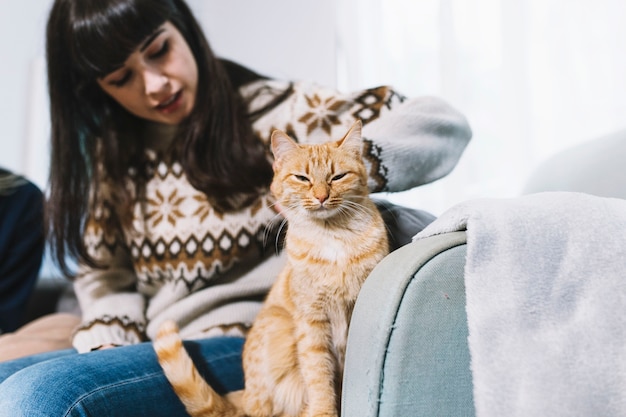

Anxiety and stress can really take a toll on your cat’s mental and physical health. Anxiety usually comes from feeling restless and scared because your cat thinks something bad might happen. Stress, on the other hand, is how your cat quickly reacts to perceived threats. When your cat feels anxious or stressed, it can seriously harm its well-being and even affect your bond with it.
In this article, we’ll go over signs that your cat might be anxious or stressed, what might be causing these feelings, and how you can help reduce their anxiety and stress so they can live a happier, healthier life.
Identifying Anxiety and Stress in Your Cat
Here are some physical signs that your cat might be dealing with anxiety and stress:
– Restlessness or agitation
– Fast heart and respiratory rate
– Avoiding eye contact
– Dilated pupils
– Shaking or trembling
– Excessive salivation
– Increased grooming
– Hiding
– Ears pinned back
– Not using the litter box properly or spraying
– Freezing or trying to escape
– Hair standing on end
– Destructive behavior
– Aggression or hissing
Causes and Effects of Anxiety and Stress
Cats often develop anxiety from past traumatic experiences or changes in their routines. Being creatures of habit, even small changes can make them anxious. Common causes include new noises, a new pet, moving to a new home, changes in litter or food, or even a trip to the vet.
An anxious cat might show unusual behaviors, have trouble socializing, and could be more prone to illnesses. As a cat owner, your goal should be to keep your cat happy and healthy. If you notice signs of anxiety or stress, it’s important to address it promptly before it gets worse or leads to physical health problems. Anxiety tends to be progressive, so early intervention is key.
Managing Your Cat’s Anxiety and Stress
Managing your cat’s anxiety usually involves a mix of behavioral strategies, environmental changes, and sometimes natural remedies or medication.
The first step is figuring out what’s causing your cat to feel anxious and then making the necessary changes. Each cat is different, so there’s no one-size-fits-all solution. However, here are some useful tips that you might want to try.
12 Tips to Reduce Your Cat’s Anxiety and Stress
1. Rule Out Any Medical Condition
Pain or illness can cause stress and anxiety. Start with a thorough physical check-up that might include blood work and diagnostic imaging to rule out any health issues. A vet visit is essential if your cat’s behavior suddenly changes.
2. Ensure All Your Cat’s Needs Are Met
It sounds obvious, but it’s easy to miss meeting all of a cat’s needs.
Basic needs include:
– A proper, nutritious diet suited to their age and activity level.
– Unlimited access to clean, fresh water.
– One or two appropriately sized litter boxes, placed in safe, quiet spots, and kept clean. Make sure your cat is comfortable with the litter type and that it’s free of unpleasant scents or textures.
– A cozy and secure place to sleep that also offers a good view of their surroundings.
– A scratching post to keep their claws in good shape.
– Physical and mental stimulation.
By addressing these factors, you can help your cat feel more secure and less stressed, improving its overall quality of life.





